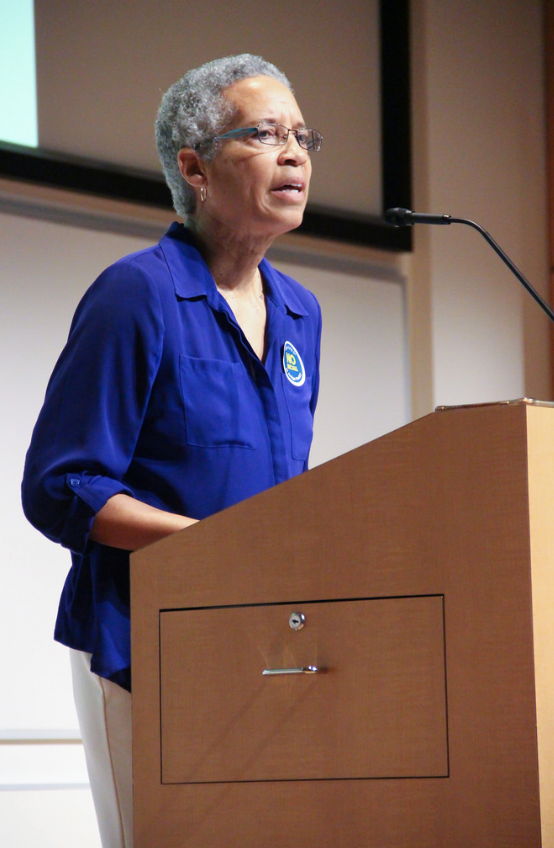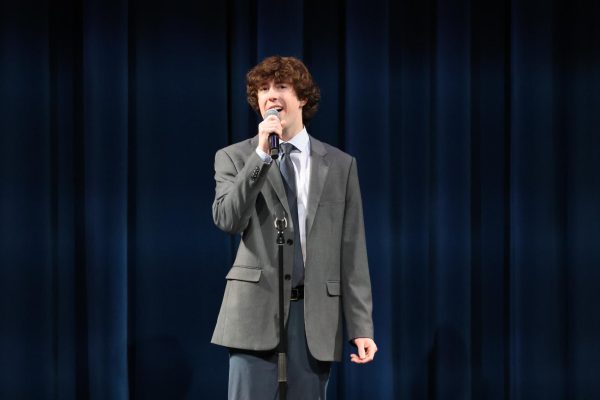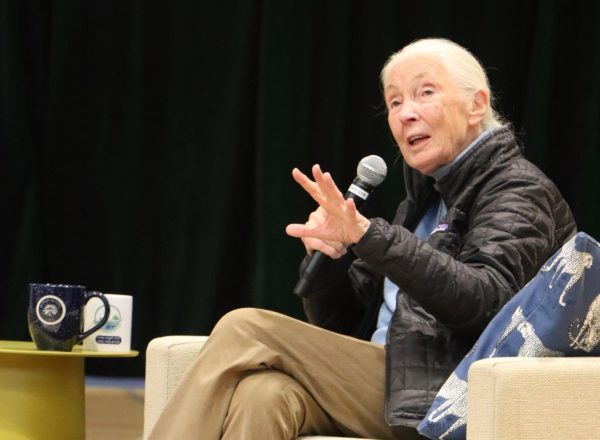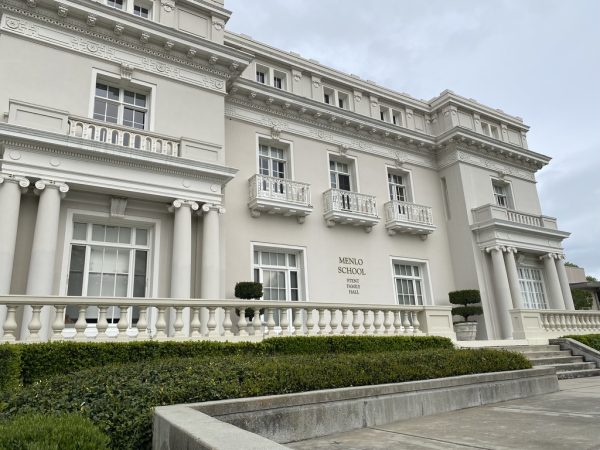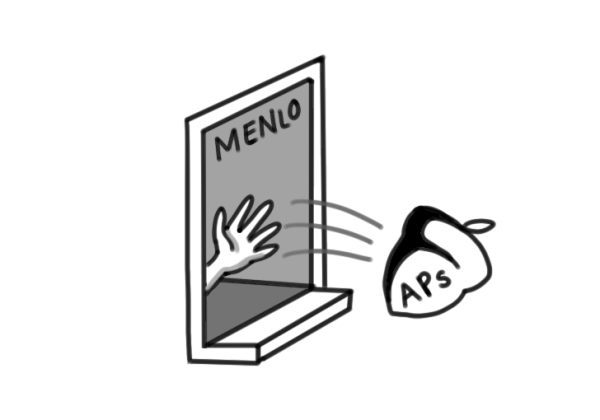Lunchtime speakers share opinions on possible recall of Judge Persky
April 27, 2018
Judge La Doris Cordell speaks at lunch to argue why fellow judge Aaron Persky should not be recalled. Photo courtesy of Pete Zivkov on Menlo Flickr.
By Samantha Stevens
During two recent lunches at Martin Hall, Professor Michele Dauber of Stanford University and former judge LaDoris Cordell expressed their reasoning for either supporting or opposing the recall efforts of Judge Aaron Persky.
Judge Persky gained national attention in 2016 for sentencing Stanford swimmer Brock Turner to six months in jail and three years of probation after being convicted of three felony counts of sexual assault. Many voices within the Palo Alto community, such as Dauber, were enraged by this seemingly light sentencing, and took to campaigning to recall Persky. Recalling a sitting judge is extremely rare, especially when based on popular or political opinion. According to William Raftery, a senior analyst for the National Center for State Courts, “Judges are only supposed to face recall, if at all, when they’ve committed a crime while in office or are deemed physically or mentally incompetent to actually do their job.”
After the recall collected many more than their needed 90,000 signatures, the question of whether to recall Judge Persky will be on the Santa Clara Ballot in June of 2018.
Dauber, who spoke at lunch on Thurs. April 19, is the avid leader of the recall efforts, which has raised over a million dollars in donations. Menlo students then got the opportunity on Mon. April 23 to hear from the opposing side, Cordell, who believes that judicial independence is at risk if Persky is recalled.
Dauber argues that Persky, who was captain of the lacrosse team at Stanford University, has a repeated bias in favor of privileged athletes and/or white males. The five examples Dauber used to display Persky’s bias included Robert Chain’s four day sentencing for possession of child pornography, two separate cases of basing football players’ sentencing on their athletic schedule, and the “De Anza Gang Rape.” The 2007 De Anza rape investigation was based on a police inquiry about the sexual assault of a minor by eight De Anza College baseball players. This case originally did not pertain to Persky. It was reviewed by the Santa Clara County District Attorney Dolores Carr in 2007, not Persky, and no charges were filed, despite having three witnesses testify to the sexual assault.
In 2011, the victim proceeded to take the case to civil court in hopes of receiving monetary compensation, where Persky became involved. Persky was criticized for allowing suggestive photos of the victim to be used as evidence against her, along with preventing other victims from testifying. Ultimately, the victim lost her case. Dauber, and the rest of the recall campaign, feels that the De Anza Gang Rape along with the other five controversial cases are sufficient reasons to recall Persky.
On the other hand, Cordell, who emphasized her experience as a judge in over 1,000 cases, said that the five cases highlighted by the recall campaign are “only 1% of one quarter of his cases.” She said that to recall a judge, there must be an undeniable pattern of misconduct, which, in her opinion, Persky does not have. As Cordell held up a thick stack of email exchanges between the recall campaign and the District Attorney, she claimed that the recall campaign only asked to see cases pertaining to sex crimes or violence against women, and then picked out the ones that would raise eyebrows, ultimately blinding themselves from the large majority of “fair” rulings made by Persky.
Cordell anticipates that by recalling Persky, judges, which are supposed to be separate from political pressure, will be unnecessarily strict in their sentencing out of fear of popular opposition. In her eyes, this is a “a threat to judicial independence.” She then said that stricter sentences due to external pressures would likely create an unfair disadvantage for people of color, who, as she pointed out, are much more likely to be charged of crimes. “It will be harder for low-income defendants, most of whom are of color, and harder for those who advocate for them, to receive judicial consideration [if Persky is recalled],” Cordell said in one online opinion piece.
As previously mentioned, it is almost unheard of for a judge to be recalled. In fact, this will be the first judicial recall to reach the ballot in 86 years, according to The Mercury News. For this reason, Dauber disagrees with Cordell and believes that present and future judges will not allow for what she views as an irrational fear of being recalled to sway their decision-making.
Although Dauber adamantly believes that Turner deserved a much heavier sentencing, she does not believe that the minimum sentence time for sexual assault should be increased. Cordell agrees. The two believe that judge discretion should be encouraged, instead of minimum prison-time, which restricts a judge from creating a specifically tailored sentencing.
Dauber emphasized that by giving light sentencing for sex crimes and violence against women, Persky is encouraging tolerant behavior for serious crimes. By removing Persky, she believes that an important warning will be given to other possible sexual assaulters and judges that these are crimes that cannot be tolerated.
Ultimately, Dauber believes that Persky was too lenient in Turner’s sentencing, and has displayed similar biases towards other white males and/or athletes. Although Cordell believes there are problems within the judicial system, she strongly disagrees with recalling Persky as a means to solve any judicial issues.


